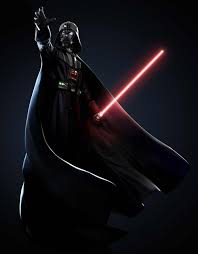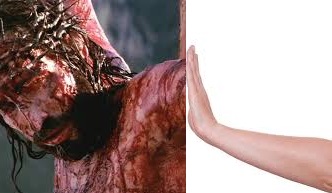
Hero of The Story
By Anthony Casperson
3-31-18
If you search out advice for how to create a good antagonist for your story, you’ll usually be given the advice that the villain is the hero of his/her own story. What this means is that, regardless of the medium in which the story finds itself, the Big Bad truly believes that what they’re doing is for the betterment of themselves, and often the betterment of the world around them because of their heroics.
Something in them has twisted or distorted a heroic stance. They perform egregious acts because their sense of right, or justice, or holiness has skewed off the path. They believe that each individual villainous act is a means to a heroic end. The king says to himself, “Sure, I just sent that troop of soldiers off to their deaths in battle, but one of them knew something that could make all of the troops lose faith in me. Better for one troop to die, than for the land to fall into enemy hands because of a doubt-filled army.”
The Big Bad isn’t evil because they like to kill off random henchmen or kick puppies. They’re evil because their goal is to steal/horde the glory for themselves. They are the center of their own story, their own universe. And condemn all who get in their way.
The antagonist of a story is one who tries to push the protagonist out of the spotlight so that they can be the center of the story.
What’s my point? What am I getting at here on this last part of our series during the season of Lent? How does this relate to what the cross teaches us?
Every person believes themselves to be the hero of their own story. We all have a sense that we are the center of our own universe. After all, our lives are a series of events told to us through the lens of our own perspective. It’s a flawed first-person narrative without the aid of an omniscient narrator.
And thus we believe ourselves to be the hero of our own story.
“Wait! Are you trying to say that we’re villains?!”
Yes.
If you look at the bible like it’s a story (though it is so much more), you’ll see that all of the events before the cross point to it. From the promise of the Descendant that will crush the head of death even while it bites at his heel, to the covenant with Abraham concerning his lineage, to the promise of an eternal throne for the line of David, the narrative woven creates the picture of a God who wants renewed relationship with his creation, but it has an infinite cost.
A cost that was paid as the Second Person of the Trinity enfleshed himself in humanity to die the death we all deserve.
And every event after the cross points back to it as well as forward to the fullness of its glory. Every persecution. Every encouragement. Every act of worship. Everything points to the hero of the story who died so that we who accept him can live eternally in holy relationship with our Creator.
The cross teaches us that Jesus is the hero of the story. Any story. Every story.
We commit villainy when we try to steal the spotlight of his heroism so that we can be the center of our own universe. When we steal the glory that belongs to him alone, we are not the hero to be emulated, but the villain to be thwarted.
And this isn’t just a follower of Jesus saying that everyone who hasn’t come to accept the cross is a villain. We who are the followers of Jesus, we who exist so close to his light, are just as easily tempted to hip check Jesus out of his glory. The fall from plucky sidekick to usurping villain is just as likely.
As we celebrate this time of remembrance for what Jesus did for us on the cross, let’s decide to stop pushing for being the hero. Let’s ask for forgiveness that we have tried to steal the place of protagonist. And continue to do this.
Better to be a side character in the story of God’s love for his creation, than the hero of our own story where we end fallen.


Example of a villainous deed.


